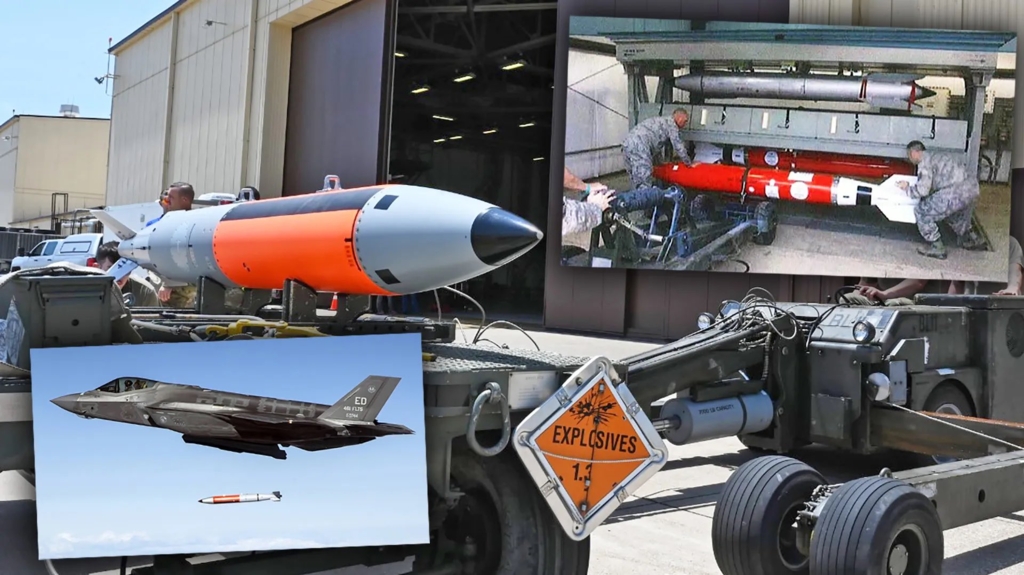Geopolitical Context Present
Recently, the tensions between NATO and Russia have significantly intensified, due to events that have heightened suspicions and distrust between the two sides. The annexation of Crimea by Russia in 2014 and the prolonged conflict in eastern Ukraine prompted the North Atlantic Alliance to reassess its security strategies in Eastern Europe. This situation has been exacerbated by Russia’s extensive military exercises at the borders of NATO member states and the Kremlin’s aggressive rhetoric, which have fueled fears of potential aggression.
Amid this tense geopolitical climate, discussions about deploying American nuclear weapons in Romania have taken on a new dimension. The decision could serve as a deterrent element against potential Russian aggression, sending a clear signal of the Alliance’s commitment to the region’s security. At the same time, such a move must be analyzed within the context of a new arms race, where states seek to strengthen their strategic positions amid increasing global instability.
Romania’s Role in NATO Strategy
Romania plays a crucial role in NATO’s defense and deterrence strategy in the Eastern Europe region. Located at the eastern border of the Alliance, Romania is seen as a strategic stronghold against potential threats from Russia. In recent years, Bucharest has significantly invested in modernizing its armed forces and enhancing defense capabilities, aligning with NATO standards and contributing to the collective security of the Alliance.
Additionally, Romania already hosts elements of NATO’s missile defense shield in Deveselu, emphasizing its importance in the Alliance’s defense architecture. This system is designed to protect member states against potential ballistic threats from outside the Euro-Atlantic region, although its presence is perceived by Russia as a direct challenge to its national security.
Moreover, Romania actively participates in NATO-organized multinational military exercises, demonstrating its commitment to regional security and contributing to enhancing the interoperability of armed forces across member states. Through these efforts, Romania not only boosts its own security but also contributes to regional stability and peace, reaffirming its position as a reliable partner within the Alliance.
United States’ Involvement in Eastern Europe
The United States plays a pivotal role in Eastern Europe’s security, maintaining a significant military presence and strategic influence in the region. As part of its commitment to NATO allies, Washington has consistently invested in boosting the defensive capabilities of eastern flank states, including through the deployment of troops and advanced military equipment. These measures aim to deter any potential aggression from Russia and reinforce the Alliance’s collective defense.
Furthermore, the United States has intensified military cooperation with Eastern European countries through various assistance programs and joint exercises, aimed at improving the readiness and interoperability of armed forces. These initiatives highlight the American commitment to European security and demonstrate determination to counter the growing influence of Russia in the region.
In the current context, discussions about the possibility of deploying American nuclear weapons in Eastern Europe, including in Romania, reflect a significant strategic shift. This option is considered a deterrent factor, intended to send a clear message of support and protection to regional allies. However, such a decision could escalate tensions with Russia and would require careful coordination with international partners to avoid conflict escalation and ensure strategic stability in Europe.
Russia’s Reaction and Regional Implications
Russia promptly responded to discussions about the potential deployment of American nuclear weapons in Romania, viewing such a move as a direct threat to its national security. Kremlin officials have warned that any expansion of the American military presence in Eastern Europe will lead to a symmetrical response from Moscow, including the strengthening of its nuclear capabilities and the deployment of additional troops in the region.
These developments have the potential to escalate regional tensions and destabilize the continent’s power balance. Countries in Eastern Europe, which are in the immediate proximity of Russia, are particularly vulnerable to pressure and destabilizing actions. Additionally, Russia’s aggressive rhetoric and frequent military maneuvers near NATO borders contribute to a climate of insecurity and uncertainty.
In this context, countries in the region are compelled to re-evaluate defense strategies and strengthen alliances with Western partners. There are also concerns that intensifying rivalry between NATO and Russia could lead to a new arms race, with serious consequences for European stability and security. It is crucial that diplomacy plays a central role in managing these challenges, to prevent conflict escalation and promote constructive dialogue between the involved parties.
Sursa articol / foto: https://news.google.com/home?hl=ro&gl=RO&ceid=RO%3Aro


